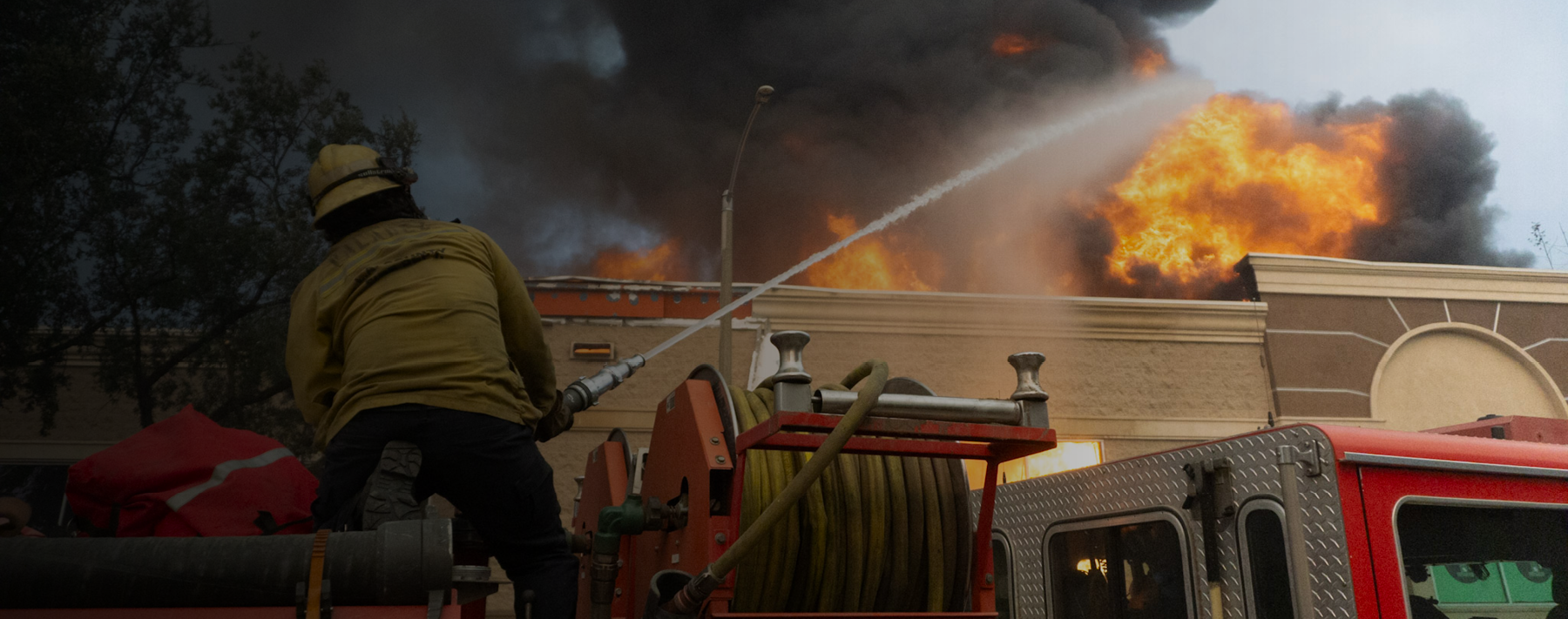Everyone experiences stress at some point in their career, but the types of stress experienced by paramedics, firefighters, and other EMS professionals is especially demanding, both physically and emotionally.
Emergency first responders have a high potential for serious injury on the job. They also work long shifts, many from 12 to 24 hours long, and have a front-row seat to traumatic events and life-and-death situations. As a result, many EMS professionals experience burnout, which can lead to low job performance, physical and mental health problems, and PTSD.
What Is Burnout?
Burnout can impact every area of a first responder’s life. It is part of the reason the average EMT only stays on the job for about five years.
The term “burnout” was first coined in the 1970s by psychologist Herbert Freudenberger. He defined the condition as “being exhausted, listless, and unable to cope due to the severe stress and high ideals experienced by people working in helping professions.”
Firefighter, paramedic and EMS burnout typically has three major symptoms:
- Exhaustion
- A lack of engagement with or withdrawing from the workplace and co-workers
- A negative attitude toward others and their personal goals
These symptoms can manifest in many ways, including:
- Underperforming on the job
- Poor nutrition
- Difficulty concentrating on everyday tasks
- Not enough or ineffective sleep
- Nightmares or flashbacks
- Loss of interest in normal activities
Burnout is surprisingly common. Nearly half of all firefighters in the U.S. are likely to experience burnout and the health problems that accompany it. But there are some things fire and EMS professionals can do to help avoid burnout.
Whatever strategy you choose to help combat the burnout you may be feeling, give it time to work. You can’t fix years of pent-up stress with a single day at the beach.
Successfully Fighting Burnout
At an agency level, many organizations have established protocols to help first responders cope with stress, process traumatic incidents, and reach out to professionals when help is needed. Many departments have implemented critical incident stress debriefings (CISD). These sessions help first responders process their trauma early on to help prevent PTSD. With sleep being such an important factor in dealing with stress, some departments are opting to schedule shorter shifts and highlight the importance of restful sleep.
Individually, emergency professionals can incorporate a variety of practices in their lives to help prevent paramedic, firefighter and EMS burnout. These include:
- Practicing mindfulness through meditation or yoga
- Maintaining a consistent, enjoyable exercise routine
- Prioritizing sleep
- Talking to supervisors and family at the first signs of burnout
- Developing hobbies like baking, gardening, writing or painting to maintain a positive work-life balance
- Setting obtainable professional goals to challenge yourself
- Seeking additional support through friends, family, and professionals
- Taking time to totally disconnect from your job by taking a vacation or turning off your phone
As you develop healthy habits that provide you with time to decompress, you will have more energy at work and at home.
1. Prioritize Your Time Off
When working in a first responder job that demands so much, it can be difficult to follow through with vacations and taking regular breaks from work stress. Work calls or messages can encroach on your days off and distract you on your weekends, making it difficult to get an actual break. Days may flow together, and before you know it, you’ve worked endless weeks without taking a mental break.
Even if you feel fine or need the hours, keep in mind that completely disconnecting and taking a day off now and then will do more for you in the long run. While it can be difficult to disconnect, talk to your supervisor to establish boundaries and schedule days when you can turn off your phone, ignore the news, and completely free your mind from thinking about work.
2. Identify Burnout Symptoms Early
While burnout can manifest in ways as unique and individual as the people experiencing it, we’re going to discuss some of the more common types of burnout, their symptoms, and what you can do to start feeling like yourself again.
The first is applying yourself too hard for too long. This form of burnout is common in the healthcare and fire industries. For many who experience burnout from working too hard, they may not identify or be able to pick up on the signs that their motivation is fading. If you’re feeling stressed, tired, or experiencing feelings of dread when thinking about your shift, be on the lookout for these symptoms:
- Not getting enough sleep or not sleeping well
- Feeling exhausted during your shift and even away from work
- Frequently experiencing feelings of stress, anxiety, fear, or dread during your shift or at the thought of work
- Enduring physical pain from overexertion (standing on your feet too long, grinding your teeth, experiencing stomach pain, eye strain, hand tremors, headaches, etc.)
- Chronic joint or muscle pain
- Finding it difficult to focus
- Loss of appetite or digestion trouble
- Weight gain or loss
- Supplementing sleep, energy, or happiness with substance use
- Experiencing emotional extremes (anger, depression, sadness, loneliness, etc.)
The next type of firefighter, paramedic and EMS burnout is harder to pinpoint but just as impactful to your overall health and well-being. Those who have spent years on the job may no longer feel challenged or fulfilled and often experience varying levels of complacency. If you’ve hit the ceiling of your healthcare career growth and have been exploring potential positions elsewhere, you may also be experiencing:
- Feelings of boredom or complacency
- Lack of motivation to apply yourself on the job
- Tendency to dismiss protocol or procedure details
- Procrastination or reassigning tasks to others
- Emotional extremes (anger, depression, sadness, loneliness, etc.)
- Neglecting your personal health
- Relationship struggles
- Poor overall job performance
Though burning out looks different for everyone, treating it remains the same. Perhaps it’s time to take a few days off, challenge yourself with something new, get more sleep, and check out some alternative career opportunities.
3. Expand Your Prospects and Your Professional Goals
For some, climbing the ladder in an emergency response career may be a challenge. Some positions may not provide frequent promotional opportunities, which can be frustrating for those looking for a new challenge. Regardless of where you are in your career and how you feel about it, considering and re-considering your professional goals should be a priority.
If you aren’t challenging yourself frequently, then you’re probably not growing. To be a better firefighter, EMT, or healthcare professional, try taking an hour to sit down and consider where you want to be in the next few years. It might be enough to start considering your position in the next year, but for others, it might be best to focus on a five-year plan. Who do you want to be? What steps can you take to get there? Does getting to your dream career require shifting gears or even starting over?
Next, take a minute to explore the professional field. Keeping your eye on your alternatives is a great way to stay up to date on what opportunities are out there and waiting for you. A fresh perspective will work wonders on your professional prospects as well as on your personal health.
Continuing Education Can Help
Seeking solutions for continuing education, or CE solutions, is another important component in fighting burnout. This will give you a chance to refresh your skills and build confidence in your current job performance. It also increases job satisfaction and opens doors for future career opportunities.
EMS and fire online courses are available through providers like Lexipol and others. Taking online courses allows professionals to gain valuable education without having to take time away from their day jobs. Courses can be completed when, where, and at what pace students desire.
Whatever strategy you choose to help combat the burnout you may be feeling, give it time to work. You can’t fix years of pent-up stress with a single day at the beach. Also, if you find one thing isn’t working for you, try another. It may take some time to find a method or combination of methods that help you re-energize your body and refresh your mind.



